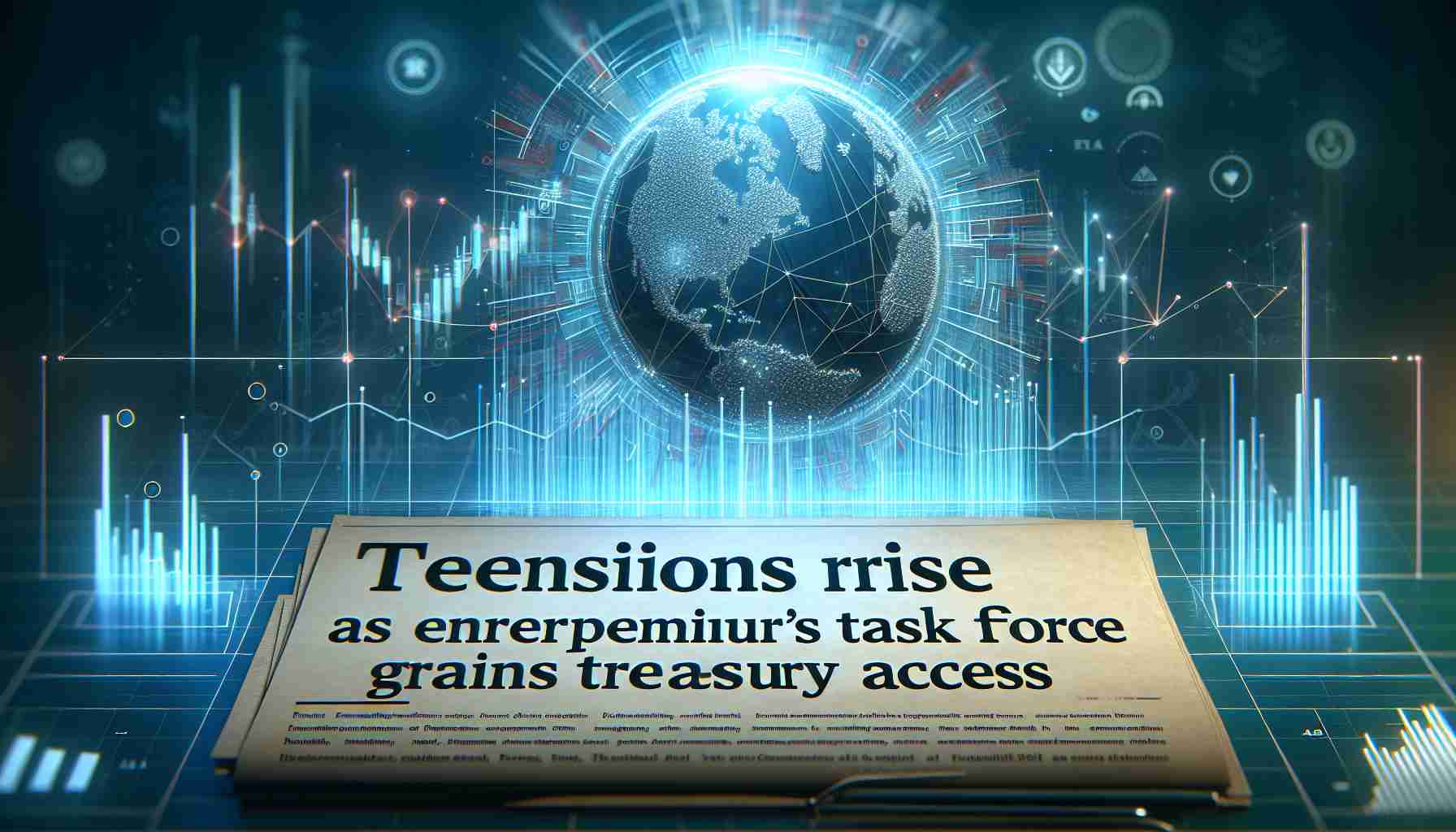- The Department of Government Efficiency (DOGE), led by Elon Musk, has gained unprecedented access to sensitive Treasury data, including Social Security and Medicare systems.
- Tasked with streamlining government operations, DOGE aims to reduce federal workers, dismantle programs, and cut regulations, challenging established bureaucratic norms.
- Senator Ron Wyden raises concerns about the potential disruption of payment systems, warning against politically motivated interference that could jeopardize essential services.
- Treasury’s acting Deputy Secretary, David Lebryk, resigned, expressing loyalty to government workers and subtly criticizing the DOGE initiative.
- Musk sparked debate on social media by alleging unchecked Treasury payments to fraudulent entities, although evidence was not provided.
- The impact of DOGE’s actions on government operations raises questions about the balance between innovation and tradition in federal systems.
In the labyrinthine corridors of Washington, a new upheaval stirs. The Department of Government Efficiency—a task force helmed by billionaire tech mogul Elon Musk—has unexpectedly tapped into the Treasury’s sensitive data veins, including the lifeblood systems of Social Security and Medicare. This startling development, confirmed by insiders, empowers the group to navigate critical taxpayer information with unprecedented access.
The task force, an emblem of the Trump administration’s aggressive stance on federal regulations, seems poised to challenge established bureaucratic norms. Their mandate? Streamline the system by trimming federal workers, deconstructing programs, and chipping away at cumbersome regulations. Yet, the entrance into Treasury’s intricate network paints a different, more controversial picture.
Senator Ron Wyden stands at the forefront of opposition, his pen crafting warnings of potential havoc. He underscores the dangers of disrupting payment systems that underpin the nation’s economic stability. Lurking beneath the surface is the chilling specter of politically motivated interference jeopardizing essential services.
The tension crescendoed with the resignation of Treasury’s acting Deputy Secretary, David Lebryk, whose departure leaves a 30-year legacy marred by unease. His farewell letter resonated with loyalty to the underappreciated fiscal workhorses of government—an implicit rebuttal to the encroaching DOGE initiative.
Then, Musk, ever the provocateur, ignited the discourse on social media, claiming unchecked Treasury payments to fraudulent entities. His allegations, unaccompanied by evidence, mirror the audacity of the DOGE agenda.
As DOGE continues to wield its newfound power, one unavoidable question arises: Can government operations withstand this seismic pressure? In the ensuing battle of innovation versus tradition, the outcome remains uncertain, but the implications for federal operational integrity are profound.
Discover the Intriguing Implications of Musk’s Task Force on U.S. Government Efficiency
Understanding the New Dynamics in Government Efficiency
The recent move by the Department of Government Efficiency (DOGE), led by Elon Musk, to access the Treasury’s critical data systems reflects a significant shift in federal operations. Let’s explore the implications, challenges, and potential outcomes of this unprecedented development.
Pros and Cons of the DOGE Initiative
Pros:
– Streamlining Operations: By reducing bureaucracy, DOGE aims to make government operations more efficient, potentially saving taxpayer money.
– Innovation and Tech Integration: With Musk at the helm, there is likely a push towards integrating advanced technologies to modernize systems.
Cons:
– Data Security Risks: Increased access to sensitive data heightens the risk of breaches or misuse, threatening privacy and financial stability.
– Political Manipulation Concerns: The potential for politically motivated actions raises questions about impartiality and governance.
Key Questions and Insights
How might DOGE’s actions impact federal employees and services?
DOGE’s mandate includes reducing federal workforce numbers, which could lead to job losses and affect morale. Additionally, dismantling or altering programs might disrupt essential services like Social Security and Medicare.
What are the potential security challenges?
Allowing a tech mogul access to sensitive information poses a risk of cyber threats and data theft. Ensuring robust security measures will be crucial to protect against vulnerabilities.
Could this lead to significant regulatory changes?
Yes, the DOGE initiative could prompt a reevaluation of existing policies and regulations. However, such changes must balance innovation with the protection of public interests.
Market Analysis and Future Predictions
The upheaval in governmental operations could reverberate through various sectors. Increased efficiency might benefit businesses reliant on government contracts, but uncertainty looms for programs dependent on federal stability.
Predictions:
– Short-term Disruption: Expect immediate turmoil as systems and policies are reevaluated.
– Long-term Changes: Potential modernization of government processes could lead to increased efficiency but may face significant political and public resistance.
Related Resources for Further Exploration
To gain more insights into government efficiency and reforms, comprehensive resources include:
– GovInfo
– Brookings Institution
– Council on Foreign Relations
These platforms offer extensive information on policy changes, government operations, and technology integration strategies. As the situation unfolds, staying informed through these credible sources is advisable.
